Kabul make-up artist: 'Women like me are Taliban targets'
- Published
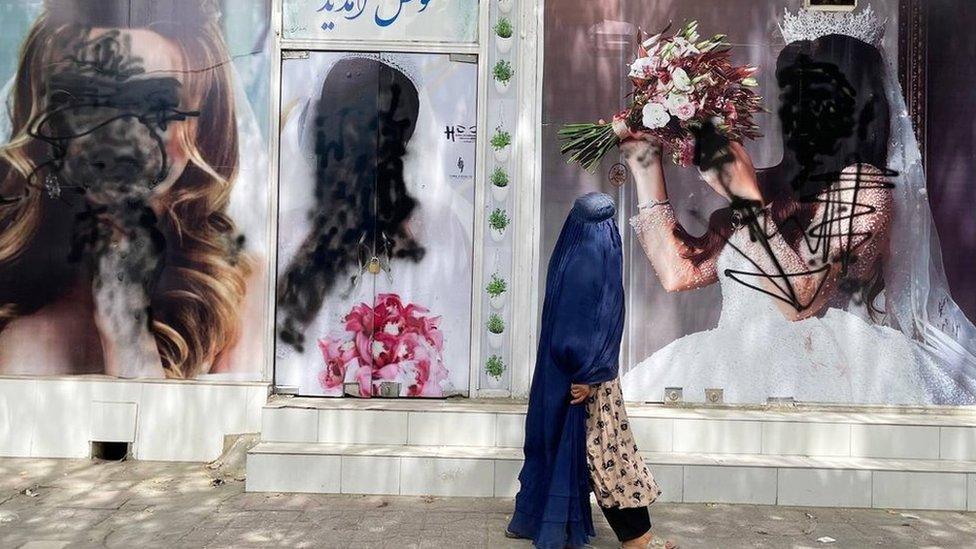
Defaced posters outside a salon in Kabul
On the day the Taliban took control of Afghanistan's capital Kabul, advertising posters outside beauty parlours showing women in bridalwear were painted over. Salons around the city were closed down too. While some businesses have vowed to return to full service soon, others fear for their futures. Afsoon (not her real name), a make-up artist in hiding, describes how much the beauty industry has meant to Afghan women.
It's hard to translate the exact meaning of the Dari phrase takaan khordum into other languages.
Roughly, it describes a rare life event that shakes you to your core, after which you will have changed forever - like the death of someone you love, someone central to your life.
Afsoon experienced the feeling of takaan for the first time on 15 August 2021.
That Sunday she woke at 10:00 to a call from a colleague at the beauty salon where she worked. Afsoon was at her happiest there, the smell of fresh shampoo and nail polish mixed with the whir of a hairdryer and chatter.
"Don't come in today," Afsoon's co-worker told her when she rang. "We are closing up. It's over."
Sitting up in bed, Afsoon checked her mobile. Her thumb moved up and down the screen of her phone as she scrolled through dozens of texts from friends and family and then hundreds of social media posts. A torrent of dread slammed her with such force that she felt freezing cold and sick at the same time.
The messages were all the same. The Taliban had entered Afghanistan's capital Kabul. Within 16 days Western troops and their diplomats were gone from the country.
"It's over," she repeated to herself. It was time to hide.
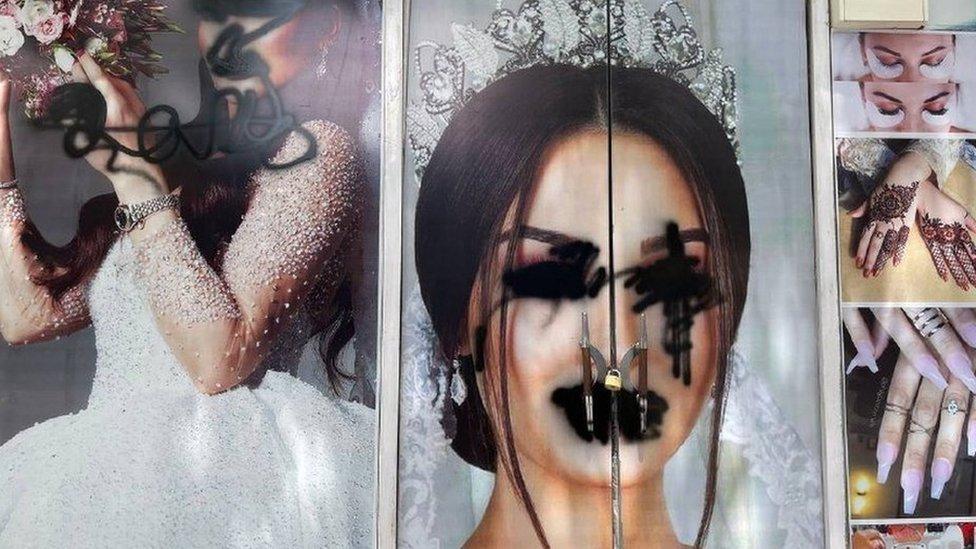
Afsoon is in her mid-20s and considers herself a modern Afghan woman.
She loves social media, she loves movies, she can drive and she has career ambitions.
Afsoon can't remember the time in the 90s, the decade she was born, when the Taliban first banned beauty salons in her country.
But she grew up in an Afghanistan where beauty parlours were a regular part of her life. In the two decades since the US-led invasion that ousted the Taliban in 2001, more than 200 beauty parlours opened in Kabul alone, with hundreds more in other parts of the country.
As a teenager she would thumb through magazines and social media for glamorous looks, and she'd visit salons with women in her family.
She loved everything about that world. The multi-coloured nail painting, the make-up artists bent over women to paint smoky kohl eyeliners to frame thick brushed eyelashes on a dewy sparkling made-up face. The glossy blow-dries and swishy long hairstyles.
Eventually Afsoon fulfilled her dream of working in one of them as a successful make-up artist. There was nothing else she'd wanted.
Like all beauty parlours in Kabul, Afsoon's salon had windows that were entirely covered with posters of glamorous and elegant women advertising a promise of beauty that could be yours inside.
The posters meant a passer-by in the hot, male-dominated streets of Kabul could not see inside the tranquil and multi-generational female space of Afsoon's salon.
At any one time there would be more than a dozen women inside, be it the stylists or the clientele - who varied from doctors to journalists, from singers and TV stars to brides prepping for their big day and teenage girls giggling with their mothers on a special bonding day out.
Business was always healthy, be it weddings or simple pampering and the salon would be so busy during festivals like Eid that it would take days to book an appointment.
"I love women. I wanted to work and build spaces where women could be free and shine," Afsoon says. "We could relax in a place away from men."
But on Sunday 15 August, the day the Taliban took control of Kabul's presidential palace, her years of hard work ended in a day.
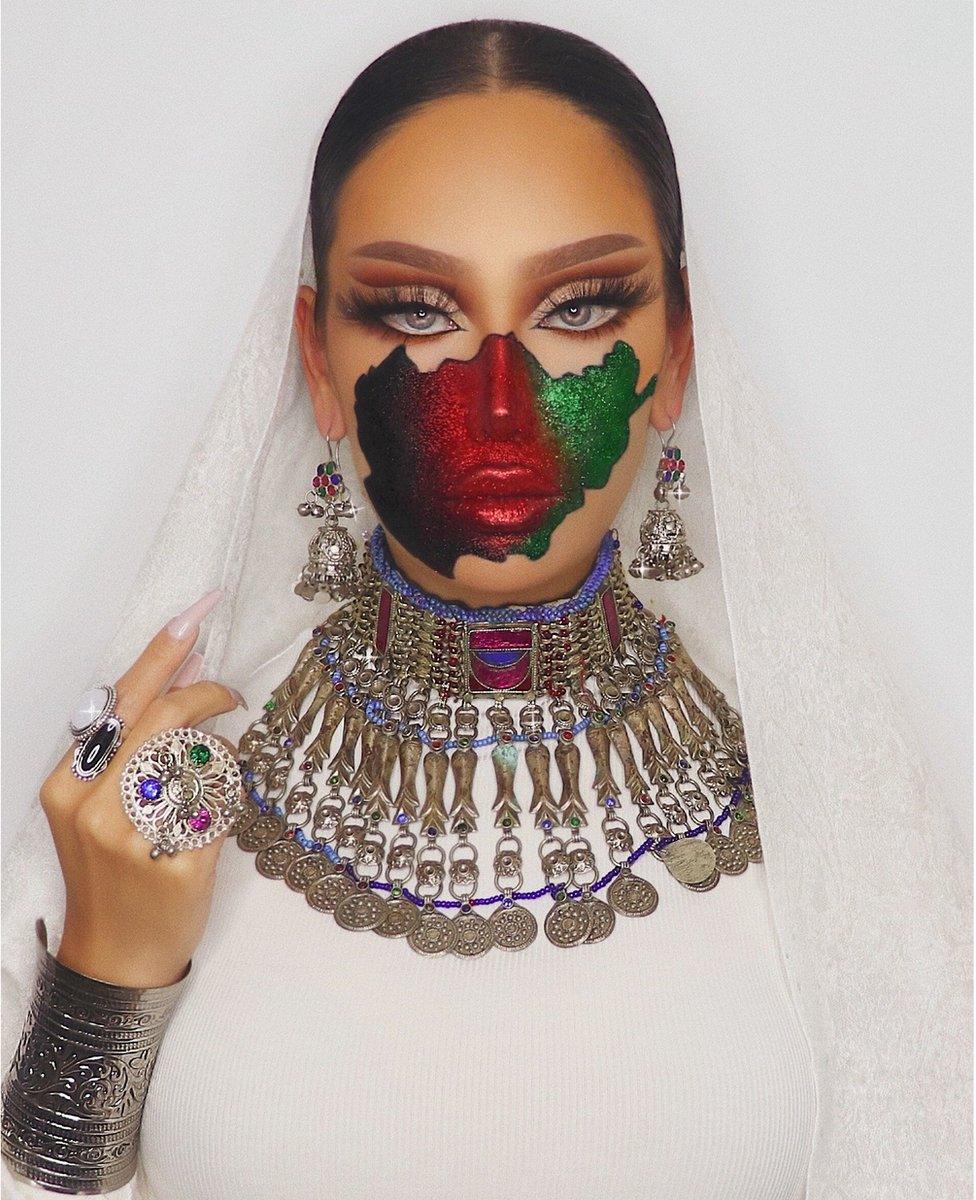
Afghan make-up artists living outside the country - like Canada-based beauty influencer Nilab Adelyar - have been showing solidarity with women inside it
It's almost midnight in Kabul and Afsoon speaks in a hushed tone down the phone to us. She's palpably afraid. She left her home that Sunday and found a safe house.
"Women in the beauty industry, especially people like me who were visible and public with our work are targets," she says.
After the phone call from her friend telling her to not come in to work, Afsoon heard that any poster that represented female beauty was being painted over by scared Kabul residents. A friend of Afsoon's painted over some posters of models himself, a gesture to appease the Taliban and not attract attention to his female friends with beauty businesses.
"There is no way they would approve of seeing unveiled faces, or the necks of women on display," she says. "They have always been very clear on their belief that a woman must not attract attention.
"It is the end of the beauty industry in Afghanistan."
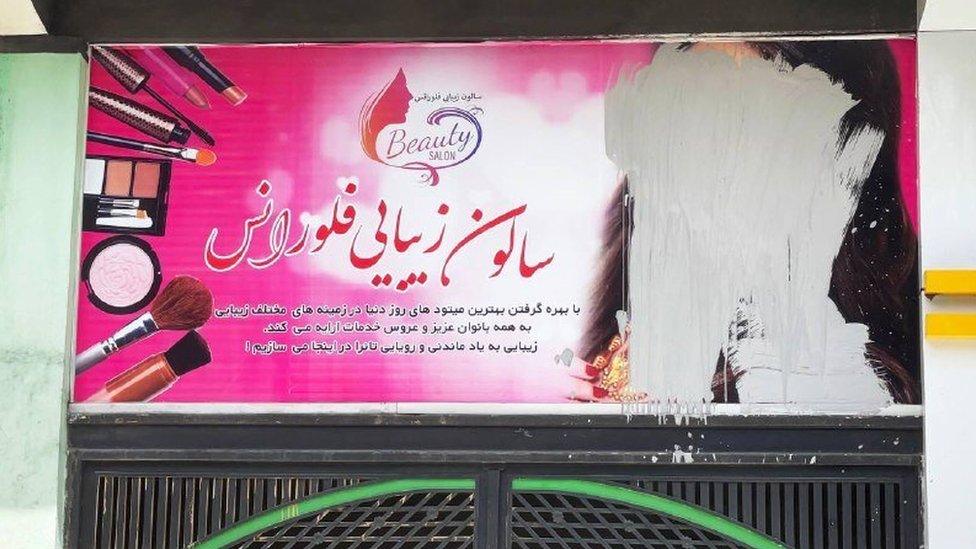
Afsoon has no invitation or paperwork that could have secured her a seat on a plane away from Kabul.
There is no way out for her.
She keeps in touch with her colleagues on a daily group chat. The last payment they received was on 24 August. No more will be coming in now. The parlour is closed and they've all accepted that they will not return to work.
Afsoon cannot talk about the future, she says.
What's next, she's not sure. She hasn't thought about how she will dress now, or even when she will venture outside.
Right now, the colour of a future she imagined has been painted over in thick black paint, and she is in the midst of a shock that has no time limit to recovery.
"Staying alive is the only thing I can think about. I'm not afraid of dying - but not like this, terrified and hopeless," she says.
"Every second I feel like the Taliban will come for me."
You may also be interested in...
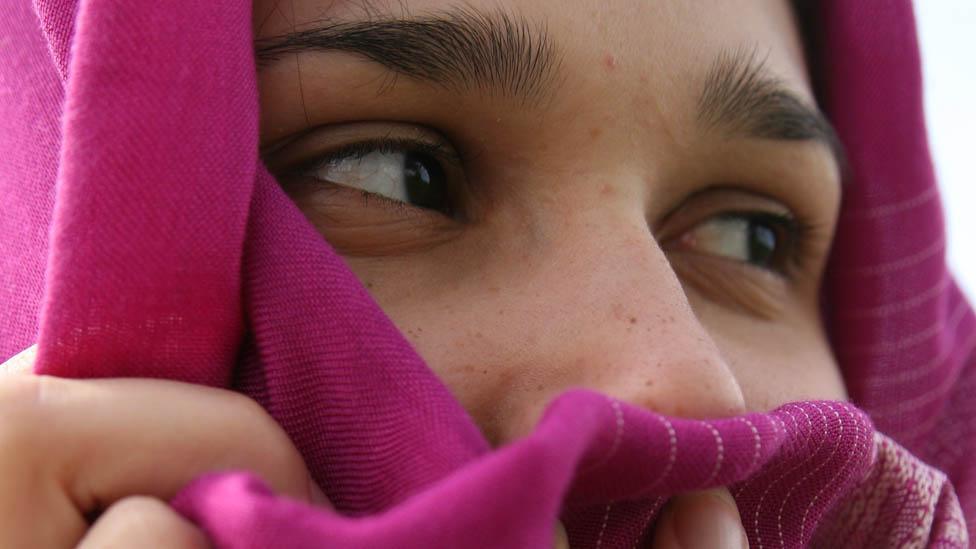
Afghanistan has been labelled one of the most dangerous places in the world to be a woman. One study suggested 87% of women in the country experience some form of domestic violence. Sodaba Haidare visited one place in the capital Kabul that offers hope to women escaping abuse. (Published April 2017.)